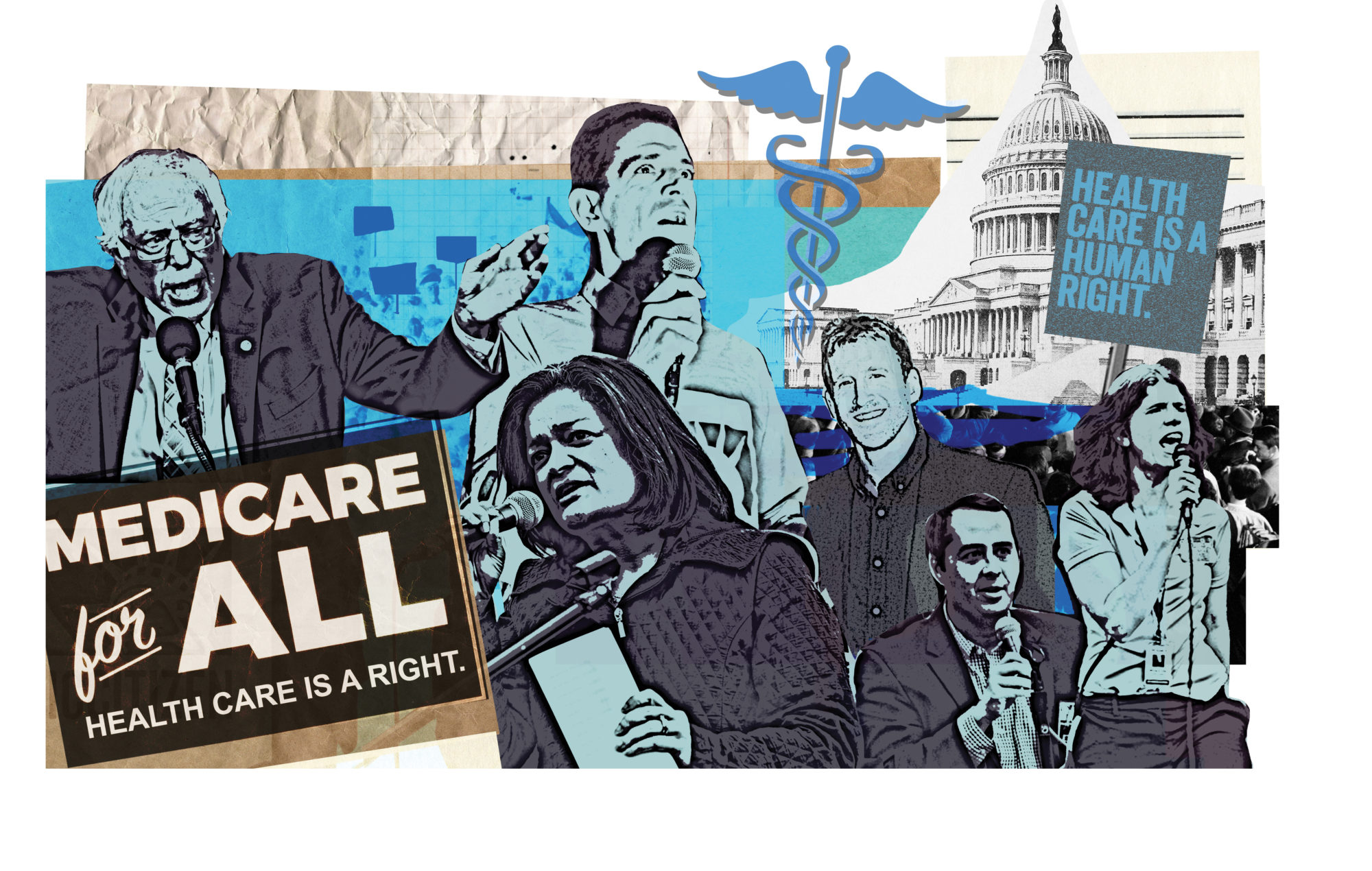Momentum of Medicare for All
By Srividya Maganti

Medicare for All is finally getting its spot in the limelight. And deservingly so, as it would fix our broken health care system—from one that neglects people who can’t afford its skyrocketing costs, to one that would guarantee health care to every American, reduce costs, and ensure access to all medically necessary services. With high levels of Congressional and public support, as well as a spike in opponents’ lobbying, Medicare for All is gaining momentum in a way never seen before.
Increasing Congressional support for Medicare for All has manifested in a greater number of and more frequent hearings, as well as rising co-sponsorship.
There has already been three hearings in the House, within just three months, that examined Representative Pramila Jayapal’s Medicare for All Act of 2019. While the first hearing examined only Medicare for All, the second hearing intended to examine more broadly “Pathways to Universal Health Care,” but Medicare for All rose to the forefront of the hearing. Senator Bernie Sanders has also introduced his own Medicare for All Act in the Senate.
The Medicare for All bill in the House was introduced with a record number of original co-sponsors. Currently, Jayapal’s plan has 117 co-sponsors, including the chairs of the House Budget committee and the health subcommittee of the House Ways and Means committee. In addition, 90% of the members of the House Progressive Caucus have co-sponsored the bill. There is even a separate Medicare for All caucus in the House, consisting of 78 members.
Behind this accelerating Congressional support for Medicare for All is a rise in public support, as evidenced by polling stats, news coverage, organizational support, and passage of local resolutions.
The issue of health care at large—both its affordability and access—is a top issue Democrats and Independents want 2020 presidential candidates to discuss. Medicare for All appears to be a popular route of reform: as of April 2019, most Americans—56%—supported a single-payer system.
Medicare for All has also been enjoying expanded news coverage, showing that it has taken up a significant space in the national conversation. It was a hot-button issue in the primary Democratic presidential debates earlier this summer, showing that Medicare for All will be of significant importance as we get closer to 2020.
Furthermore, a variety of groups have expressed their support for Medicare for All. Medicare for All is a bold and inspiring approach to activists, integral to helping get out the vote. More than 75 national groups and over 100 state, local, and labor groups have endorsed the legislation. Notably, racial justice organizations, such as the NAACP and others, have joined the movement, highlighting how the existing health care system particularly disadvantages minorities. Policy experts, including over 200 economists, have also expressed their support.
Growing public support has manifested in the enactment of local resolutions. In June, St. Petersburg, one of the largest cities in Florida, and Cook County, the second most populous county in the country, passed resolutions to support Medicare for All. This shows that Americans want Medicare for All and will work to implement it in their communities and states, regardless of what happens in Washington.
Finally, a spike in the efforts of Medicare for All’s opponents signifies that Medicare for All is now being perceived as a legitimate, realistic policy. A group of corporate libertarian organizations launched a new coalition against Medicare for All, called NoSocializedMedicine.org, fueled by corporate greed at the expense of American lives. A recent Public Citizen report further elucidated a surge in opposition lobbying on Medicare for All between 2018 and 2019, almost entirely from prominent conservative groups and the health care industry. These industry interests have recognized that Medicare for All is a credible threat to their profits and are working hard to curb Medicare for All’s momentum.
The future of Medicare for All looks promising. Medicare for All is what Americans want—it should be the future of American health care. It makes fiscal sense, reducing total national spending on health care and contributing to economic growth. It ensures no American will go bankrupt or die due to health care expenses, grounded in the belief that health care is a human right. Most importantly, it is achievable, if we continue to work together.
Join us on continuing the fight for Medicare for All.